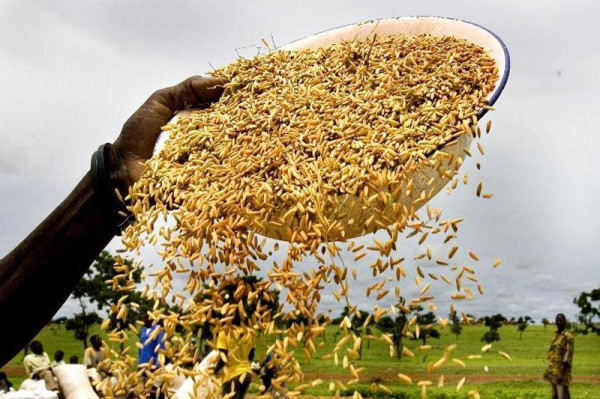Human Wrongs Watch
The world wastes enough food to feed an estimated two billion people, the United Nations on 24 October 2014 said, as its three Rome-based food agencies announced the launch of a digital platform designed to take aim at the growing problem of “food loss.
The new online program me, called the Global Community of Practice (CoP) on Food Loss Reduction, was jointly launched by the Food and Agriculture Organization (FAO), the International Fund for Agricultural Development (IFAD) and the World Food Programme (WFP), with the goal of becoming “a global reference point” in the facilitation of information sharing between stakeholders such as public entities, civil society and the private sector.*
Saving Food Is of Paramount Importance
As a result, it will also permit stakeholders to tap into relevant news and events and access links to online libraries and databases as well as social networks and online trainings.
In a press release marking the inauguration of the project, FAO Deputy-Director General for Natural Resources, Maria Helena Semedo, stressed that with more than 800 million people in the world still suffering from hunger, saving food was of paramount of importance.
“When food is saved, the resources used to produce it are saved. Reducing waste and losses by not creating these in the first place should be a priority for all,” said Ms. Semedo.
According to UN estimates, in fact, roughly 30 percent of global food production, that is 40-50 percent of root crops, fruits and vegetables, 20 percent of oilseeds, meat and dairy products and 35 per cent of fish, is either lost or wasted, amounting to some 1.3 billion tonnes – or enough food to feed 2 billion people.
One-third of all food produced worldwide is lost or wasted. Credit: FAO
Amid the wastefulness, global efforts to reduce the “unacceptably high” rates of food loss must also be holistic, IFAD Vice-President Michel Mordasini added, pointing to the role of smallholder farmers who, he said, were “most vulnerable.”
For its part, the WFP’s Post-Harvest Loss Reduction initiative currently reaches 16,000 smallholder farm families in Uganda, with the aim of reducing post-harvest losses by 70 percent amongst participating smallholder farmers.
“The available technical solutions still have to be made accessible and affordable to those farming communities,” Mr. Mordasini continued.
“I am therefore encouraged by the fact that the Global Community of Practice on Food Losses will engage with and tap into the knowledge of farmers and practitioners, as well as researchers, development agencies and policymakers.” (*Source: UN).
Read also:
One Third of All Food Produced Is Lost or Wasted Each Year
If We Had to Pay the Bill to Nature, What Would Food Waste Cost Us?
No Life-saving Food Aid for 6 Million Syrians Due to Lack of Funds
Food Security Is Still “Touch-and-Go” in Arid, Conflict-torn Somalia
Lead in Infant Formula, Arsenic in Rice — UN Sets New Food Safety Standards
One Third of All Food Produced Is Lost or Wasted Each Year
Mauritania: Sharing Every Bit of Food … Just to Survive
South Sudan: “People are Dying, People are Suffering—This Is a Crisis”
Burkina Faso: Families Eating the Seeds They Should Plant
Sahel: No Food for 18 Million People – Urgent Help Needed for Women, Children
Demand for More Milk and Meat Feeds 13 Big Killers
Rising Voracious Consumption, Living as If We Had Two Planets
Big Business Stealing Seeds, Devouring Life Cycle
Food Inequality Equation: 1.5 Billion Obese; 925 Million Hungry
A U.S. Military Command to Grab Africa’s Natural and Mineral Resources
2014 HUMAN WRONGS WATCH











